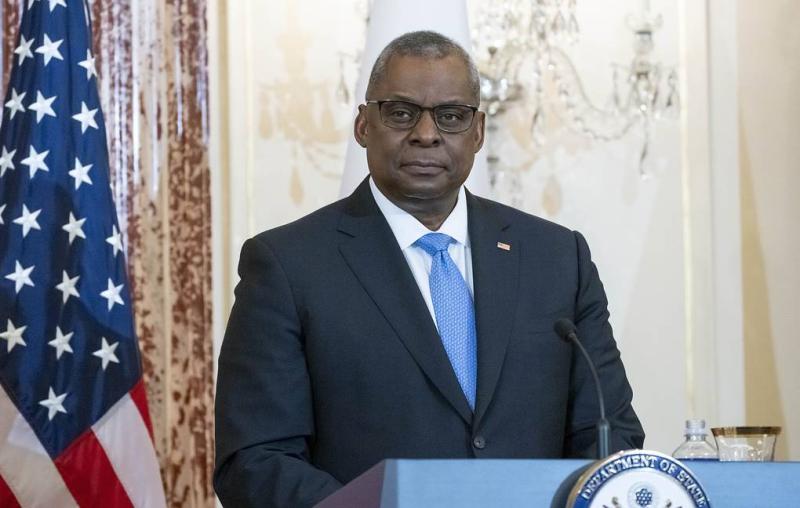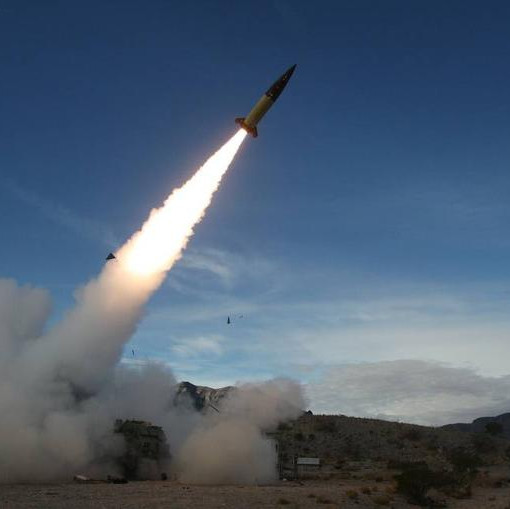
© AP Photo/Alex Brandon/TASS
Top stories from the Russian press on Tuesday, March 7th, prepared by TASS
The reason behind the Pentagon chief's tour of the Middle East, Russia refuses annual Vienna Document data exchange, while experts expect a 1.15% drop in Russia’s GDP this year. These stories topped Tuesday’s newspaper headlines across Russia.
Nezavisimaya Gazeta: Pentagon chief sets off on Middle East tour
US Secretary of Defense Lloyd Austin has embarked on a tour of the Middle East designed to show that Washington is still keeping an eye on the region. First, he visited Jordan, where he held talks with King Abdullah II. Despite the fact that the Pentagon originally pledged to focus on challenges being posed by Iran, the negotiations in Jordan primarily centered around the situation surrounding the West Bank, according to Arab news portals. The Arab world fears that the increasingly rightist course being pursued by Israel could exacerbate the security situation.
Austin will also make stops in Israel and Egypt, while the overture to his trip was a visit to northeastern Syria by Mark Milley, the US Chairman of the Joint Chiefs of Staff. This was the first visit by a high-profile US military official to the Kurds’ breakaway region, drawing condemnation from the Syrian Foreign Ministry. It slammed Milley’s arrival as a blatant violation of the country’s sovereignty and the principles of the inviolability and indivisibility of its territory. Syria’s diplomatic agency also called on countries seeking regional and global security and stability to denounce and put an end to similar actions by the United States and demanded that the Biden administration "immediately cancel systematic and insistent violations of international law and its support for armed groups of separatists."
Military expert Yury Lyamin told Nezavisimaya Gazeta that the situation in the region as a whole remained tense amid stalled discussions of the Iranian nuclear program, the ongoing confrontation between Israel and Iran, and other factors. While the major steps being made by the US are aimed at countering Russia and China, Washington is not going to leave the Middle East unattended, he explained. According to Lyamin, the containment of Iran through threats, warnings and sanctions has been the cornerstone of Washington’s Middle East agenda in recent years.
That is why the US needs these visits to monitor the military and military-political situation in the region as well as sentiments among its regional allies and to assure them of their continued support in the confrontation with Iran, the expert added. Probably, potential further steps will be considered and discussed during these visits, while the currently tense situation in the Middle East is fraught with sudden sharp escalations, where things can quickly evolve into an open military conflict, he concluded.
RBC: Russia refuses to disclose data about its armed forces to OSCE
Russia has refused to participate in the annual exchange of data on the armed forces stipulated by the 2011 Vienna Document and covers 57 member countries of the Organization on Security and Cooperation in Europe (OSCE), the US-based Arms Control Association reported, citing a Russian letter and an unnamed European official. Konstantin Gavrilov, head of the Russian delegation to the Vienna Negotiations on Military Security and Arms Control, confirmed this information to RBC.
Moscow first communicated its decision in mid-January, when Gavrilov sent a letter to Bosnia and Herzegovina’s representative to the OSCE, Sinisa Bencun, who at the time chaired the organization’s Forum for Security and Cooperation.
According to the letter, Moscow would not provide information on its military forces for 2023, reneging on its commitments under Chapter I of the Vienna Document. This step, Gavrilov said, was taken in response to the Czech Republic’s decision to suspend its commitments to Russia as well as Ukraine's refusal to take part in the 2023 annual information exchange and submit routine notifications. "We proceed from the assumption that if the Russian Federation provides any data as part of the annual information exchange, it will end up in the hands of the above-mentioned participating countries," Gavrilov said in his letter.
"Diplomacy is based on the principle of reciprocity. We simply could not allow our information to be intercepted by the above-mentioned states as a result of our transferring data on the Russian armed forces," Gavrilov told RBC.
Izvestia: Experts anticipate 1.15% decline in Russia’s GDP in 2023
Ten out of 13 experts from banks, financial institutions and rating agencies interviewed by Izvestia expect the Russian economy to contract this year. The other three forecast the GDP to hover around 0%, while under the median estimate, the economy should shrink by 1.15%. This prediction is more upbeat than what Moody's expects (-3%), but is lower than the 0.3% real GDP growth projected by the International Monetary Fund for 2023.
The experts polled by Izvestia all agreed that they expected the defense sector, government services and exports, as well as the establishment of new logistics chains to prop up the country’s GDP this year. Agriculture, the steel sector and processing industries servicing defense companies should develop, too, according to analysts at the Credit Bank of Moscow, while the Economic Development Ministry is betting on domestic demand and private entrepreneurs for GDP growth.
However, the Russian GDP will not yet be able to move out of the red, experts warn. The main reason behind the anticipated contraction of the Russian economy is declining oil and gas exports in the wake of the EU’s embargo and price ceiling on Russian oil and petroleum products, chief macroeconomic analyst at Finam Olga Belenkaya told Izvestia.
Meanwhile, Anton Pavlov, Deputy Chairman at Absolut Bank, says the most difficult part of the adaptation period is now behind us and that the economy has already adapted to the new conditions.
Vedomosti: Division within Turkey’s opposition could play into Erdogan’s hands
On Monday, Kemal Kilicdaroglu, who chairs the Republican People’s Party, was nominated Turkey’s main opposition party leader from the six-party Nation Alliance to challenge Recep Tayyip Erdogan in the May 14 elections. Kilicdaroglu was chosen after his younger fellow party members, the mayors of Istanbul and Ankara, refused to run in the election.
Kilicdaroglu was announced as the presidential candidate after bickering by the Good Party, whose leader Meral Aksener refused to support her candidacy and said on Friday her party would suspend its participation in the alliance.
The discord in the opposition comes at a time when Erdogan and his party are trying to show that they are worth their salt in handling the aftermath of the devastating February 6 earthquakes by punishing those behind the construction of seismically unstable buildings. At a government meeting on March 6, Erdogan said more than 46,000 people were killed in the quakes, while Interior Minister Suleyman Soylu said of the 560 people who could be prosecuted, 160 had already been detained. The pro-government media said in recent weeks it was the opposition who boycotted the ruling party’s urban renovation program in a number of regions in 2016-2017 that envisaged the demolition of 6 mln to 10 mln dilapidated or not up-to-code houses.
A poll published by Areda Survey on February 28 showed that 49.8% of respondents were ready to cast their votes for Erdogan, while Kilicdaroglu garnered support from only 21.7% of respondents. The incident with Aksener and her party will have an extremely negative impact on the already fragile opposition coalition which has been campaigning on its negative attitude toward Erdogan and ambitions to reinstall the republican government, Amur Gadzhiyev, a researcher at the Russian Academy of Sciences’ Institute of Oriental Studies, told Vedomosti. According to him, the scandalous nomination of Kilicdaroglu means the alliance’s chances of winning are essentially nil, while Erdogan, his party and their supporters can be congratulated on the victory in advance.
Izvestia: Russian researchers come up with idea of orbital supercomputers
Russian scientists have announced a project to install data centers and supercomputers in outer space. This could help reduce energy consumption and greenhouse gas emissions on Earth. Under the initiative, the orbital complex will consist of solar panels, a power converter, heat release devices and equipment for data processing and transmitting.
According to experts, the project will be especially relevant for quantum PCs operating in ultra-low temperatures. However, it is unclear yet if its advantages will outweigh the significant costs of orbiting such stations.
Georgy Shcheglov, Professor at Bauman Moscow State Technical University and the author of the initiative, said a cluster of similar data centers could be established. Ideally, it could be installed at the so-called Lagrange (L1) point where the batteries will never stop generating energy, he told Izvestia. Besides, data both from Earth and, say, a group of meteorological satellites could be submitted to such a supercomputer, providing meteorologists with ready-to-use weather forecasts of greater value, he added.









